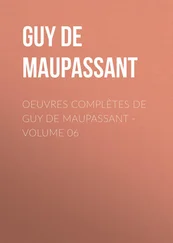Plenty of banging and hollering finally raised a light inside the house and, some time later, brought Mr. Stutz to the back door, his usual deliberate self.
“Aren’t you the drowned rat?” was his only remark as he swung wide the door. “Hurry up now and get yourself out of that.”
Inside, spilling water from the brim of his hat down onto a small braided rug that Stutz had steered him to, Alec pondered what it would take to rattle Mr. Stutz. It was evident from the careful way he was dressed – shirt buttoned to the collar, suspenders hooked – that he had been in no particular rush to learn the reason for all the commotion at his door so early in the morning. Everything in good time. Another thing, he hadn’t acknowledged the corn piled in Alec’s arms which was already scenting the kitchen with its sweet, green smell.
“This corn’s for you,” the old man said abruptly. “It’s picked fresh.”
Stutz began to scold him, ignoring the corn. “Look at you,” he said, fetching a tea-towel which had been neatly hung on the door of the woodstove to dry, “you’ve gone and got yourself wet feet. Kick them slippers off,” he ordered, going down on his knees, “and let me give those feet a rub with a warm, dry towel. An old fellow like you – why the cold can climb right up your legs and settle in your kidneys. A kidney complaint is no laughing matter your age. You catch cold in your kidneys, then where’ll you be?” he asked, vigorously towelling the blue-veined feet naked on the braided rug.
“Try and leave some skin on,” said Monkman, resentful at being spoken to in this way. “And don’t forget I’m standing here with an armful of corn.”
“You can put it in the sink when I’m finished,” said Mr. Stutz, grunting like a shoeshine boy. “Right now I’m trying to work some colour into these feet of yours. They’re white as snow, bless me.”
While Stutz chafed his feet, Alec stared down at the creases crosshatching the back of his neck. It occurred to him that Stutz wasn’t a young man anymore either. Time flies, as the man said. Yet he could remember as if it were yesterday the afternoon almost fifteen years ago that Mr. Stutz presented himself without warning at the garage and laid a claim on the job. He had acted as if it was his for the taking. It was in the week before Christmas, in the twilight of a short winter’s day threatening storm, that this large man carrying a cheap suitcase had appeared in the back of the shop, his shoulders dusted with snow. Earl and he had looked up from the bucket where they were rinsing gaskets, expecting that the man was a traveller who had hit the ditch and wanted a tow. Instead, he said he had come to take the job advertised in The Western Producer . He could start Monday.
At first he had been leery about Mr. Stutz. Stutz was fairly young, looked fit, and wanted a job that nobody else had bothered to apply for. Immediately he had suspected a conscript on the run. Also, his last name, Stutz, sounded German. He had asked him point-blank, “You ain’t by any chance dodging your call-up, are you? Because I don’t want no involvement with the bulls.”
“Not me,” said Stutz, “I only got one eye. The left one’s glass.”
So he had read it as cockiness. But cocky or not he had had to hire him with a war on and a labour shortage. It took him a week or two before he changed his mind and gave it another name than cocky. Sincerity. Yes, there had been something about the bugger. He had introduced himself as Mr. Stutz and it stuck. In the back of the garage on that snowy afternoon he hadn’t troubled to try and sell himself, only waited unruffled and patient for his answer, suitcase hanging on the end of his arm. Take me, or leave me, his face said.
It was Earl, always deathly shy around strangers, who had helped him decide. He spoke to the man. He said, “It was me wrote out the ad for the paper. Dad says I write a clearer hand than him.” Earl had seemed to be laying a claim for some of the credit in bringing the stranger to Connaught.
Suddenly Monkman heard himself saying what he had only meant to think. “Earl’s been on my mind a lot lately. I think it’s because of Vera’s boy.”
Mr. Stutz rose, groaning, from his knees. “I can take that corn off your hands now,” he said.
As the ears thudded on the sink bottom, Alec suggested, “If you got a pot of water on the boil now we could strip a few ears and have them at the pink of perfection.”
Mr. Stutz was the only man capable of discomforting Alec Monkman with a single glance. He discomforted him now. “It’s three o’clock,” he said severely. “I eat corn at three o’clock and it’d have me up and on the toilet before six.”
“Corn was intolerant of Earl the same. But he couldn’t stay away from it or tomatoes. Tomatoes were the hives though. All summer long his mother used to have to watch him. He’d steal corn out of the garden; he’d sneak out with the salt shaker and eat tomatoes warm off the vines. Ate the corn raw and nearly shit himself silly. The boy never had a trace of sense.”
“Now you go easy,” warned Stutz, “or you’ll work yourself into a state again. Remember what I told you before? You got to accept your part in it, Alec, but nobody can say how big that part is. And your part isn’t all of it neither.”
Monkman did not appear to notice what was being said to him. “Vera wants to know where he is. She’s set the boy to spying on me.”
“You know what I think. I’ve told my opinion before.”
“And if I told her, what then? That girl’s flint. I always meant to – when we settled our differences. But I can’t even get forgiveness where I don’t see I done any wrong. You tell me what I did that was so terrible? Asked her to stop at home and take care of her brother. Most girls would have jumped at the chance of such an easy life, keeping house for a man and a boy. She didn’t have enough work to keep her busy half the day, always smoking cigarettes and drinking Cokes with her friends in the Chinaman’s. That’s suffering? Most girls that age would have been beside themselves to be free as a bird, a regular allowance to spend as they liked – plus what she stole from housekeeping. The way she milked me she could have been rich as a princess in a few years.
“And I wouldn’t have asked her to do it but for Earl. He needed somebody after his mother passed away. Him going on about hearing Martha moving around the house when he was alone; I figured that for wishful thinking out of loneliness. So I wanted her there at home for him because he was high-strung, high-strung from a baby up. He always showed it.
“And now she wants to know where he is? Did she ever think she’s got no right? Because she walked out on her brother, didn’t she? I’m not just talking about the Army and the war, but after, too. Because didn’t she disappear on him? After the war he never got a letter from her. You think that didn’t upset him? You’re goddamn right it did. No letter until the one she sent to announce she’d got married and that one was too late, he never got it. So sure he was upset. People disappearing on him left and right – his mother, his sister. No wonder he hung on my heels like a stray pup, probably afraid I was going to vanish into thin air on him, too, I suppose. You remember how that was, Stutz? We couldn’t turn ourselves around without bumping into him or tripping over him. He wouldn’t let us out of his sight.”
“His company was no trouble. He was always a pleasant boy.”
“Sure he was a pleasant boy. But you wasn’t the one responsible for him was you? You didn’t have to get him to some point of usefulness, did you?”
“That’s true. It wasn’t me who was responsible.”
“I mean, how long was I supposed to let him continue on that way? Isn’t it natural for a boy his age to want his independence? Instead, he had to trail around after us. Christ, he could’ve been taken for simple. It had to stop. The boy had to make himself suitable, had to find his place. And I tried him every place, didn’t I, Stutz? I gave him his chances, didn’t I?”
Читать дальше












